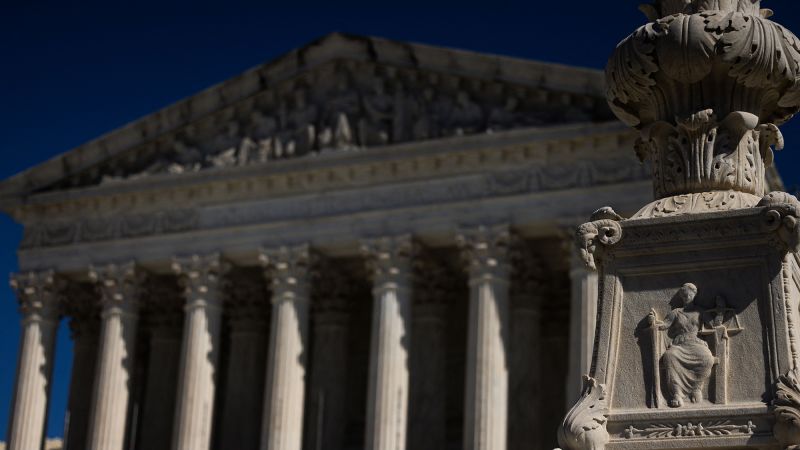

In a significant legal development, a federal judge has indefinitely blocked President Donald Trump's ban on transgender individuals serving in the military. This decision marks a notable setback for the president's controversial policy, which he revived from his first term. This indefinite block comes amid an intense national debate about the rights of transgender individuals in various societal domains, particularly military service. The judge's ruling, stating that the ban is 'soaked in animus,' underscores the broader conflict over transgender rights in the United States.
The Ban's ResurrectionIn a move that has sparked a great deal of controversy, President Donald Trump sought to resurrect a policy originally introduced during his first term – a ban on transgender individuals serving in the military. The policy, which was met with widespread criticism from civil rights groups and activists, was initially introduced in 2017. It marked a stark reversal of the Obama administration's decision in 2016 to lift the ban on transgender service members, a move that was hailed as a significant step forward for LGBT rights.
Despite the backlash, the Trump administration pressed ahead with plans to implement the ban. Arguing that it was necessary for military readiness, the president cited "tremendous medical costs and disruption" as reasons for the policy. However, these claims have been fiercely disputed by various studies and reports, which suggest that the impact on military effectiveness and costs would be minimal at best.
Nevertheless, the ban was officially put into effect in April 2019, leading to legal challenges from several transgender service members. These individuals claimed that the policy was discriminatory and infringed upon their constitutional rights, an argument that has now been upheld by a federal judge.
The Opposition and Legal ChallengesThe ban on transgender military personnel has faced strong opposition from military officials, rights groups, and lawmakers. Former Secretary of Defense, James Mattis, released a statement in 2018 expressing his disagreement with the ban, stating it would have adverse effects on the morale and effectiveness of the military. Various military officials echoed his concerns, stating that diversity in the military was a strength, not a weakness.
On the legal front, the ban has been challenged multiple times in court. This most recent ruling by the federal judge is the latest in a series of legal setbacks for the policy. The judge found that the ban was not only discriminatory but also lacked a valid reason for implementation. The decision also cited multiple studies showing that transgender service members did not impact military readiness or unit cohesion.
Lawmakers have also challenged the ban, with some introducing legislation aimed at reversing it. Some argued that anyone who is willing and able to serve their country should be allowed to do so, regardless of gender identity. The House of Representatives passed a resolution in 2019 condemning the ban, but it was not taken up by the Senate.
This legal victory for transgender service members and their advocates is a significant one. However, it remains to be seen whether this will be the final ruling on this issue, or if it will continue to be a contentious topic in the years ahead.
The Legal ImplicationsLegal experts have weighed in on the decision, noting the potential implications for future military policies. "This ruling essentially establishes a precedent that can be cited in future cases involving discrimination in the military," says Dr. Lydia Johnson, a constitutional law professor at Georgetown University. "It's a significant blow to the Trump administration's attempts to implement policies that are not based on merit but on personal bias."
According to Dr. Johnson, the decision by the federal judge sends a clear message to the administration and to the military. "This ruling unequivocally states that transgender individuals cannot be categorically excluded from military service," she explains. "It reasserts the principle that in the United States, individuals should be judged based on their ability to perform their duties, not on their gender identity."
Dr. Johnson also emphasizes the role this ruling could play in shaping future legislation and policies. "This could be a game-changer, not just for the military, but for civil rights in general. It could pave the way for stronger protections for transgender individuals across all sectors," she adds.
Final ThoughtsIn the face of controversy, the judicial system has once again played a critical role in the preservation of individual rights and freedoms. The recent indefinite block on President Trump's ban on transgender service members serves as a reminder of the resilience of the American legal framework. This decision underscores the significance of maintaining equality and respect for all individuals, regardless of their gender identity.
While the ban's future remains uncertain, the court's decision represents a significant blow to the policy. It sends a message that policies perceived as discriminatory or prejudiced face serious hurdles in standing up to legal scrutiny. The court has ensured that the rights of transgender service members continue to be protected for the time being.
As the nation continues to grapple with issues of equality and representation, this development signifies an important stance on human rights. It echoes the constant pursuit of a more inclusive and equal society, where everyone is treated with dignity and respect, irrespective of their identity.
Source: https://www.cnn.com/2025/03/18/politics/transgender-military-court-ruling/index.html
Business & Economy
Jamie brings a wealth of knowledge in financial markets, global trade, and economic trends. From analyzing corporate strategies to breaking down inflation and recession risks, Jamie ensures that you stay informed about how the economy impacts your daily life.